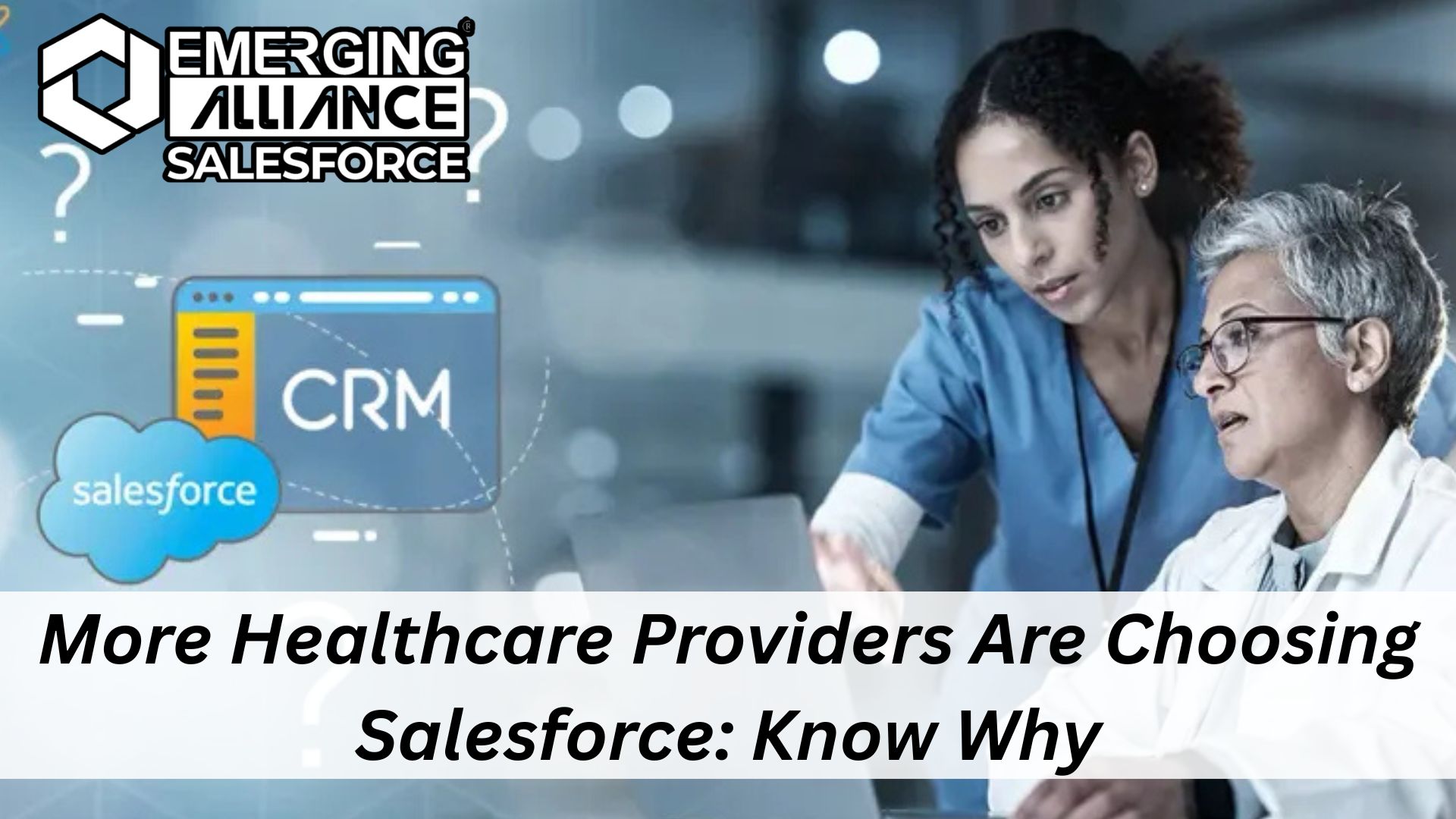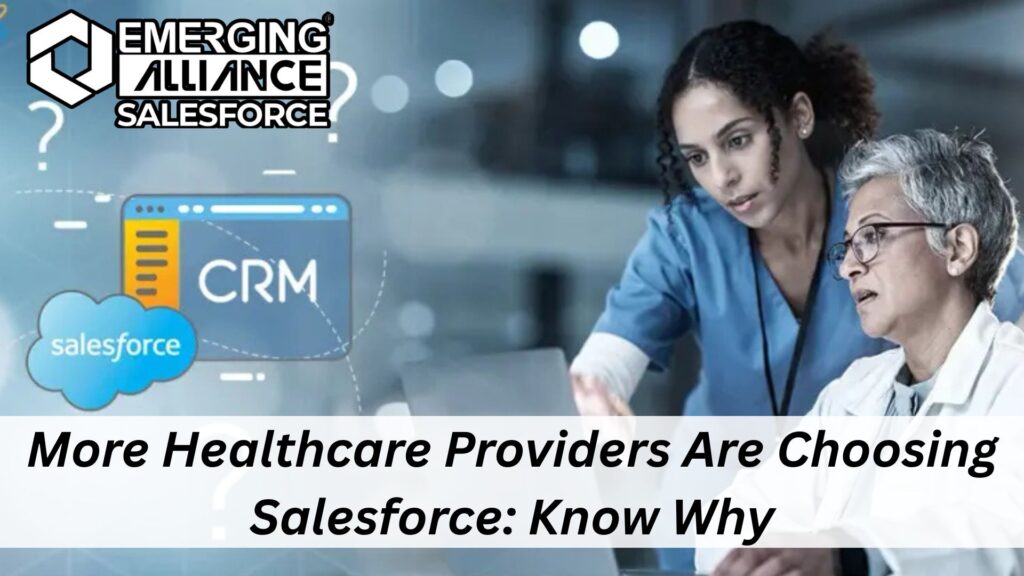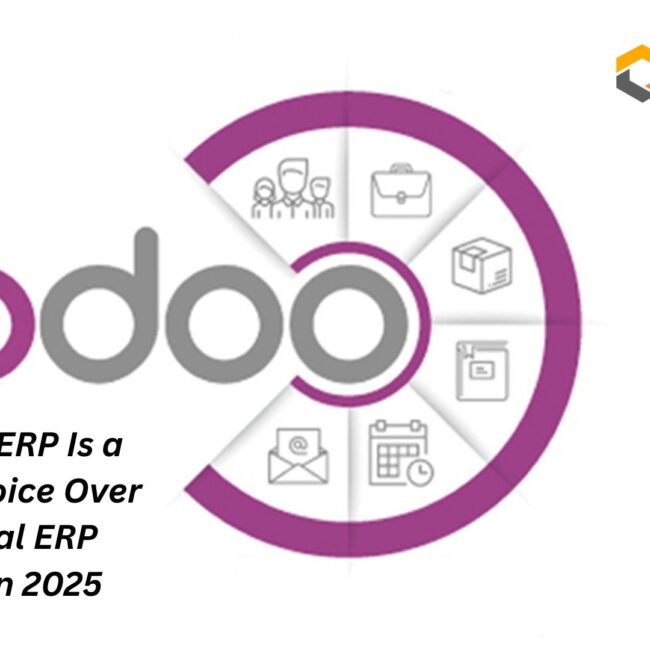
More Healthcare Providers Are Choosing Salesforce: Know Why

The Future of Healthcare Service Industry: Powered by Salesforce CRM
As the healthcare service industry faces increasing demands for better patient engagement, faster care delivery, and regulatory compliance, many providers are turning to Salesforce for Healthcare. From hospitals and diagnostic centers to specialty clinics and wellness providers, Salesforce is helping organizations streamline operations, connect care teams, and deliver a truly patient-centric experience. This blog explores why Salesforce is becoming the preferred CRM platform for modern healthcare service providers — and how it can transform your patient care strategy.
🧠 Salesforce enabled- Centralized Patient Information for Smarter Care
- Unified records: medical history, interactions, appointments, and preferences
- Accessible across departments: doctors, support staff, care coordinators
- Reduces duplication and manual data entry
- Enhances speed and accuracy of diagnosis and treatment
🧬 Salesforce Health Cloud delivers a real-time, holistic view of each patient.
⚙️ Automated Heathcare Workflows That Save Time
- Appointment scheduling and reminders
- Follow-up and care plan tracking
- Internal case routing and approval flows
- Less paperwork, more patient-facing time
📈 Healthcare teams work smarter and faster with Salesforce automation.
💬 Personalized Communication That Builds Trust Between service providers and receivers
- Omni-channel engagement (SMS, email, WhatsApp, portals)
- Timely updates on test results, follow-ups, and wellness tips
- Automated campaigns for check-ups, vaccinations, and health education
🤝 Boosts patient satisfaction, loyalty, and engagement.
🔗 Seamless Integration with EMRs and Other Systems
- Connects with EHR/EMR platforms via HL7/FHIR
- Integrates with lab, billing, and insurance systems
- Enables end-to-end visibility from treatment to claims
🔍 No need to switch systems — Salesforce works with what you already use.
🔐 Built-In Security and Compliance Readiness
- HIPAA and GDPR-ready platform
- Secure, role-based data access
- Full audit trails and encrypted storage
✔️ Patient data stays protected, and compliance becomes easier.
📊 Real-Time Analytics for Better Decisions
- Dashboards for service quality, operational KPIs, and financials
- Predictive insights into patient trends, high-risk cases, and staff productivity
- Custom reports for management, regulatory, and audit use
🧠 Turn healthcare data into real-world action.
🚀 Conclusion: Salesforce Is the Future of Patient-Centric Healthcare
Healthcare providers need flexible, scalable, and intelligent systems to keep up with changing patient needs and regulatory demands. Salesforce delivers exactly that. From smarter care coordination to personalized communication and integrated services, it helps you focus on what truly matters — better patient outcomes.
Also read, similar articles that interests you on various other products and services for Health care related industries.
FAQs
1. What is Salesforce and how does it help healthcare services?
Salesforce is a cloud-based CRM that helps healthcare providers manage patient relationships, automate workflows, and improve service delivery. It enables better care coordination, real-time communication, and secure data handling.
2. Is Salesforce Health Cloud HIPAA/ DISHA compliant?
Yes, Salesforce Health Cloud is designed to support HIPAA (Health Insurance Portability and Accountability Act) and DISHA (Digital Information Security in Healthcare Act) and other similar acts, compliance with robust security, audit trails, and access controls to protect patient health data.
3. Can Salesforce integrate with existing EMR/EHR systems?
Yes, Salesforce can integrate with EMR/EHR platforms using industry standards like HL7 and FHIR, often through tools like Mulesoft or custom APIs.
4. Is Salesforce suitable for small clinics and mid-sized healthcare providers?
Absolutely. Salesforce is scalable and configurable, making it ideal for single-location clinics, diagnostic centers, and multi-specialty hospital networks.
5. How does Salesforce improve patient engagement?
Salesforce enables personalized, timely communication via email, SMS, or portals, while offering patients self-service options and real-time updates about appointments, test results, or follow-ups.
6. What are the key benefits of using Salesforce in healthcare services?
Some key benefits include 360° patient views, improved workflow automation, better communication, enhanced compliance, and actionable insights from real-time analytics.
7. Can Salesforce help with care team coordination?
Yes, Salesforce supports care team collaboration by centralizing patient data, assigning tasks, and tracking progress across departments and caregivers.
8. Does Salesforce offer reporting and analytics for healthcare operations?
Yes, Salesforce provides customizable dashboards and reports for patient care trends, operational efficiency, service quality, and regulatory audits.
9. How secure is Salesforce for storing patient information?
Salesforce offers enterprise-grade security, including data encryption, role-based access, audit logging, and compliance with healthcare regulations like HIPAA and GDPR.
10. What makes Salesforce different from traditional healthcare CRMs?
Unlike traditional CRMs, Salesforce offers AI-powered tools, multi-channel engagement, cloud scalability, and integration with health systems — making it a future-ready platform for healthcare providers.
💡 Ready to transform your Healthcare service functions with the help of Salesforce? Contact us today!







